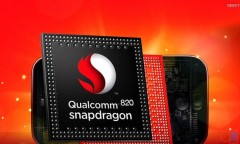By Prei Dy, | February 08, 2017

China is starting to outpace the United States in terms of technological progress. (YouTube)
China is positioning itself in the artificial intelligence market, stripping the US off its strategic monopoly of the technology. Such advancement could be seen on its next generation of warfare, CNBC reported.
The US' plan to introduce artificial intelligence in the military is taking shape as Chinese researchers assert themselves in the budding technology market. The pivot is reflected in the recent commercial artificial intelligence advances of Chinese firms.
Like Us on Facebook
It cannot be denied that the United States used to have the military advantage based on technological leadership. However, the introduction of cheap and readily available microchip trimmed down the US' ability to control technological advancement in the late 1980s. Moreover, as more and more consumer electronics manufacturing firms have moved to Asia, both Chinese firms and Chinese government laboratories are allocating huge investments in artificial intelligence.
"The Chinese leadership is increasingly thinking about how to ensure they are competitive in the next wave of technologies," Adam Segal, an emerging technologies and national security specialist at the Council on Foreign Relations, said.
In August 2016, China Daily reported that China is developing a flexible cruise missile system, dubbed the Long Range Anti-Ship Missile (L.R.A.S.M.), powered with "high level" of artificial intelligence. Although the 'semiautonomous' weapon is controlled by humans, the missile employs artificial intelligence technology to avoid defenses and finalize targeting decisions.
China also unveiled Sunway TaihuLight, the world's fastest supercomputer, which is equipped with a homegrown processor. Like a weapon, the supercomputer could be used to carry out different tasks including highly sophisticated ones such as machine-learning research which could have military applications and typical defense functions like simulating nuclear weapon tests or breaking adversaries' encryption.
"They are making their machines more creative," John Arquilla, a military strategist at the Naval Post Graduate School, said. "A little bit of automation gives the machines a tremendous boost."
Whether China is merely imitating US technological advances or is engaging in independent innovation, or if China could catch up with US' recent artificial intelligence and robot technologies, are subjects of intense debates in the US.
Baidu's chief scientist Andrew Ng noted that the US at times exhibits too much self-confidence, stressing that there are instances when something is being invented simultaneously elsewhere in the world but are only reported overseas later. "But then US media reports only on the US version," he said, adding that this could create a misconception that the US is always the leader.
-
Use of Coronavirus Pandemic Drones Raises Privacy Concerns: Drones Spread Fear, Local Officials Say

-
Coronavirus Hampers The Delivery Of Lockheed Martin F-35 Stealth Fighters For 2020

-
Instagram Speeds Up Plans to Add Account Memorialization Feature Due to COVID-19 Deaths

-
NASA: Perseverance Plans to Bring 'Mars Rock' to Earth in 2031

-
600 Dead And 3,000 In The Hospital as Iranians Believed Drinking High-Concentrations of Alcohol Can Cure The Coronavirus

-
600 Dead And 3,000 In The Hospital as Iranians Believed Drinking High-Concentrations of Alcohol Can Cure The Coronavirus

-
COVID-19: Doctors, Nurses Use Virtual Reality to Learn New Skills in Treating Coronavirus Patients















